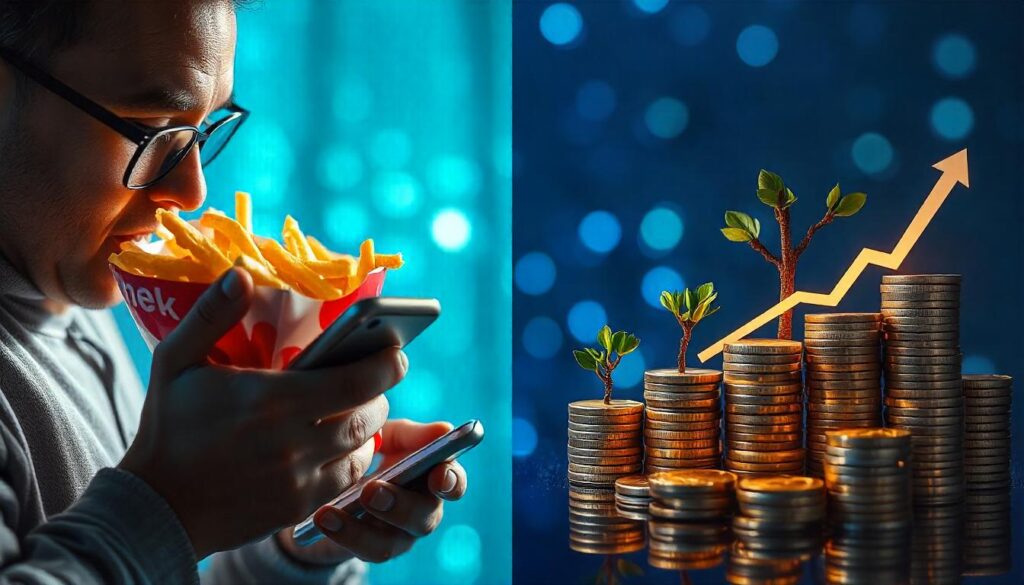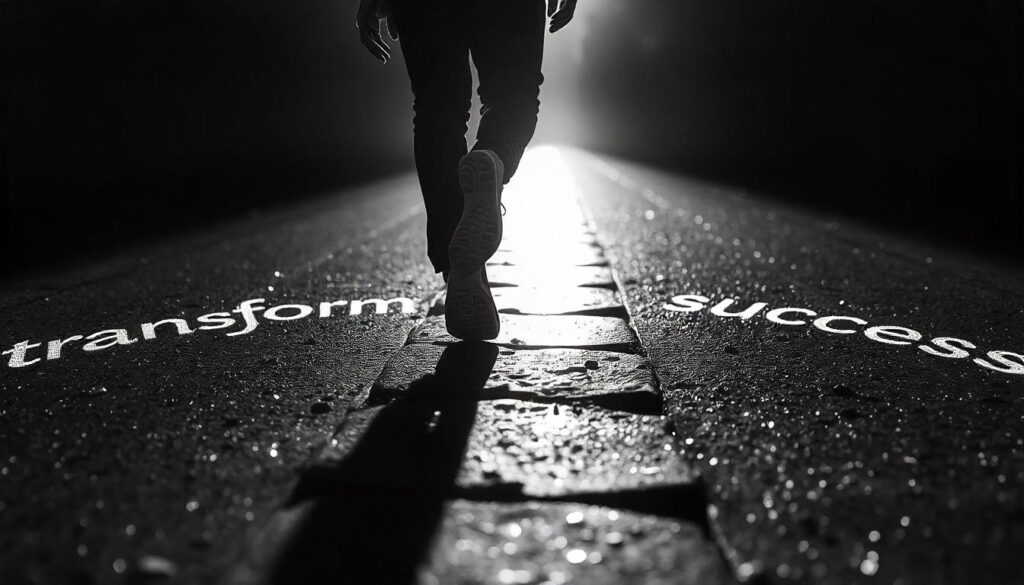We’ve all heard the saying, “Mindset is everything.” But when it comes to the rich vs poor mindset and habits, the difference is much more profound than just positive thinking. It’s about how they see the world, their financial decisions, and how they approach their everyday lives. If you’ve ever wondered why some people seem to attract wealth while others struggle, the answer lies in these mindsets and habits.
But don’t worry – understanding this doesn’t require being a financial guru or a psychology expert. Let’s break it down in a fun, engaging way, and maybe, just maybe, we’ll get you thinking about how you can unlock your own potential.

The Mindset Shift: Rich vs Poor Mindset and Habits
Before we dive into habits, let’s start with mindset. It’s the foundation of everything. The rich and the poor don’t just think differently – they approach challenges, opportunities, and even failure in completely different ways.
Rich Mindset: Opportunity is Everywhere!
Rich people tend to see opportunities where others see obstacles. They focus on possibilities, think long-term, and are comfortable with taking calculated risks. Think of someone like Elon Musk. He’s not afraid to fail because he knows every setback is a learning experience that brings him closer to success.
A rich mindset is about abundance. It’s the belief that you can grow, learn, and create wealth no matter where you start from. This mindset doesn’t limit you to a single job, career, or income stream – it opens up the idea that there are multiple ways to build wealth, and none of them involve luck.
Example:
Take Warren Buffet, for example. Despite being born into a modest family, his mindset allowed him to build one of the world’s biggest fortunes. He didn’t focus on what he lacked; instead, he leveraged opportunities, learned from his mistakes, and invested wisely. His mindset led him to success, not just his bank account balance.
Poor Mindset: Limited by Circumstances
On the flip side, people with a poor mindset often see the world through a lens of scarcity. They may believe that opportunities are limited or that they’re stuck in their current situation. There’s a tendency to blame circumstances for their lack of success, and this can make it hard to break free from a cycle of financial struggle.
It’s not that they don’t have the potential to succeed – they just often can’t see the forest for the trees. They might hesitate to take risks because they’re afraid of losing what little they have. In a way, a poor mindset keeps people anchored to their current reality, making it tough to take the leap into something better.
Example:
Think about someone who feels stuck in a job they don’t like, but they never pursue other opportunities because they fear the unknown. The poor mindset focuses on what could go wrong, rather than what could go right. It keeps them confined to their current situation.

Habits: The True Game-Changer
Mindset alone isn’t enough. It’s the habits you cultivate based on that mindset that will truly determine whether you’re living the life of your dreams… or not. The habits of the rich and poor are worlds apart.
Rich vs Poor Mindset and Habits: How the Rich Manage Money
Money isn’t just about what you make – it’s about what you keep and how you manage it. And when it comes to managing money, the rich have a distinct advantage. Here’s how:
- Investing vs Spending:
People with a rich mindset don’t just spend money on things they want today – they invest it in assets that will grow over time. Stocks, real estate, or even businesses that generate passive income are common investments. They understand that building wealth requires putting money to work for them.On the other hand, those with a poor mindset often focus on short-term pleasures. They spend money on things that depreciate, like gadgets or fast food, rather than putting it into investments that could help them in the future. - Budgeting and Saving:
The rich budget meticulously. They understand that saving money isn’t about depriving themselves, but about creating financial freedom. They save and then invest, aiming for long-term growth. Rich vs poor mindset and habits also show that saving for an emergency fund is non-negotiable for the wealthy.Meanwhile, those with a poor mindset might not see the importance of budgeting. They live paycheck to paycheck, often feeling that no matter how much they save, it’s never enough. The habit of budgeting and understanding the flow of money is just as crucial as earning it in the first place.
Real-World Example: The Power of Compound Interest
Rich people understand the power of compound interest. For instance, if you invested $1,000 at an interest rate of 7% annually, after 10 years, it would grow to $1,967. The rich take advantage of compounding to grow their wealth, whereas those with poor financial habits often miss out on such opportunities because they don’t invest early enough or wisely.

The Power of Learning: Rich vs Poor Mindset and Habits in Education
Another key difference between the rich and poor lies in how they view learning and growth. The rich are lifelong learners. They invest in books, courses, and seminars, always looking to improve themselves and expand their knowledge. They know that learning isn’t just about academics – it’s about growing as a person and becoming more valuable in the marketplace.
A poor mindset might not prioritize learning. There’s often a belief that formal education is the only way to succeed, but the rich know that true education comes from real-world experiences, mentors, and self-improvement.
Example:
Consider someone like Bill Gates, who often reads books and seeks new knowledge in his field. He doesn’t stop learning just because he’s a billionaire. This mindset of constant growth and learning keeps him ahead of the game.
Networking: Rich vs Poor Mindset and Habits
The rich understand the power of networking. They surround themselves with other like-minded individuals who are also striving for success. These connections open doors to opportunities, collaborations, and knowledge sharing.
In contrast, those with a poor mindset may not place much value on networking. They might feel insecure or believe they don’t have anything to offer. This limits their exposure to valuable resources that could otherwise propel them forward.
Real-World Example:
Imagine a small business owner who attends networking events, connects with others in the industry, and forms partnerships. Over time, these relationships open doors to new clients, investors, and collaborators. Meanwhile, someone with a poor mindset might avoid networking, missing out on key opportunities for growth.

How to Adopt a Rich Mindset and Habits
Now that we’ve seen the differences, let’s talk about how you can start shifting your rich vs poor mindset and habits. It’s not about drastically changing who you are overnight – it’s about small shifts that will lead to bigger changes.
1. Start With Your Mindset
The first step is adopting a mindset of growth and abundance. Every time you face a challenge, ask yourself, “What’s the opportunity here?” If you look at setbacks as learning opportunities, you’ll start to see the world in a whole new light.
Also, surround yourself with people who inspire you. Their mindset and habits will naturally influence your own. By changing the way you think, you change the way you act, and that’s where transformation begins.
2. Prioritize Long-Term Thinking
Think beyond today. Plan for the future by saving, investing, and creating multiple streams of income. Even if you start small, the key is consistency. Build good financial habits now, and watch your wealth grow over time.
Look at your financial situation from a long-term perspective. Instead of thinking about today’s bill, think about the financial freedom you could have five or ten years from now.
3. Build a Learning Habit
Whether it’s reading books, attending webinars, or learning new skills, make education a daily habit. The more knowledge you gain, the more empowered you’ll be to make better financial decisions. Take online courses, read books about personal finance, or seek mentorship from someone who has achieved what you want.
If you’re passionate about something, dive deeper. A rich mindset constantly seeks ways to improve and grow.
4. Network and Collaborate
Put yourself out there. Meet new people, build relationships, and learn from others who are on the same journey. The right network can make all the difference. Attend conferences, join online forums, and don’t be afraid to talk to successful people.
Remember, opportunities often come through connections – so invest time in building relationships.

Conclusion: Transform Your Mindset, Transform Your Life
In the end, the key difference between the rich and the poor is not about how much money they have, but how they think and act. Rich vs poor mindset and habits are a result of different approaches to life, money, and personal growth. While the rich see opportunities everywhere and invest in long-term growth, the poor tend to focus on short-term fixes and struggle to break free from their circumstances.
The rich prioritize investing, saving, and networking, while continuously learning and evolving. In contrast, the poor may not value education, often avoid risks, and miss out on the long-term benefits of financial discipline and growth. These habits aren’t innate; they can be cultivated with time, effort, and the right mindset.
To shift your mindset, start with the simple changes: think long-term, prioritize your financial health, invest in your education, and surround yourself with people who inspire and challenge you. Small changes in the way you approach life can lead to big results.
So, what’s stopping you from adopting a rich mindset today? It’s time to take control. Start with one small habit change – whether it’s setting aside savings, learning something new, or building your network. Every step you take gets you closer to the life you desire.
Are you ready to transform your mindset and habits? Take action today! Start with one new habit and watch how it changes your future. Let’s make the shift from scarcity to abundance, one habit at a time.







